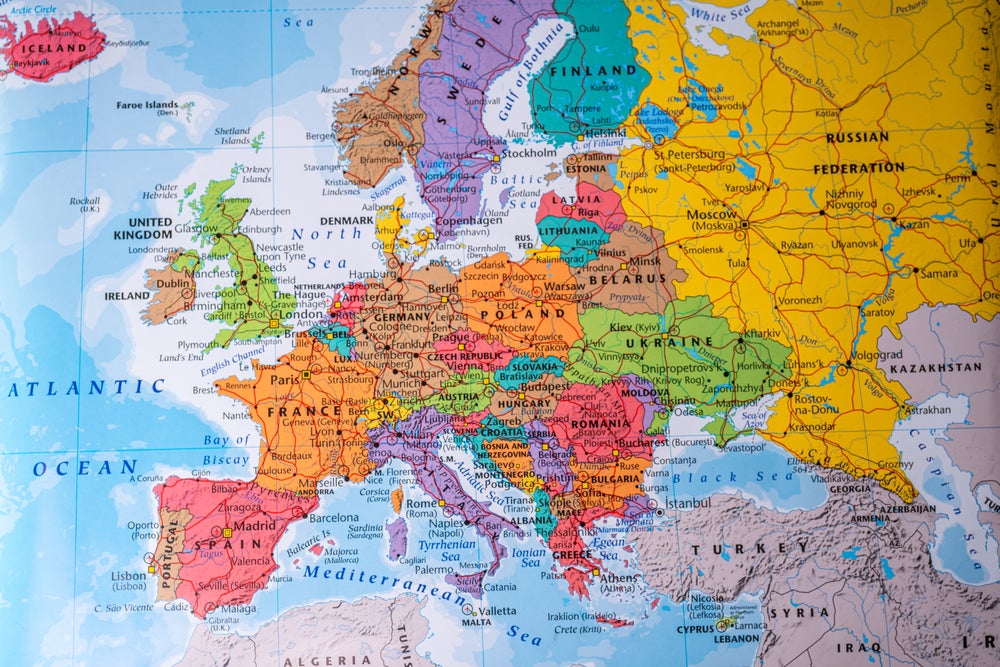
The UK ranks 23rd among 30 analysed countries in Europe for the average purchase incentives offered for electric vehicles (EVs), according to a recent survey conducted by UK-based online marketplace Leasing Options.
Over the last three years, the UK has provided an average incentive of £1,875, positioning it in the middle of the pack in terms of encouraging EV adoption.

Access deeper industry intelligence
Experience unmatched clarity with a single platform that combines unique data, AI, and human expertise.
The study aimed to assess the current standing of the UK in Europe regarding EV purchase incentives. Analysing 30 countries, the research explored the monetary incentives offered to drivers to consider EVs, identifying the country with the most impactful incentives and investigating the impact of removing these incentives on sales.
While the UK experienced a modest increase in average Battery Electric Vehicle (BEV) sales, with a growth rate of 79% over the past three years, it fell behind leading countries such as Slovenia (228% increase) and Greece (159% increase) in driving electric vehicle sales.
Taking the lead in offering the highest average BEV purchase incentives from 2020 to 2023 is Romania. The government currently provides a grant of €11,500 (up from €11,250) to encourage drivers to purchase a new BEV and scrap their old vehicles. Romania anticipates a significant surge in BEV sales, projecting an increase from 1,506 in 2019 to 13,996 by the end of 2023, reflecting an average growth of 79%. Similarly, Cyprus, which introduced incentives in 2022, experienced a remarkable 379.8% increase in sales after offering drivers up to €20,000 to buy a BEV and scrap their old cars.
Contrastingly, eight countries, including Belgium, Bulgaria, Czech Republic, Denmark, Iceland, Latvia, Malta and Switzerland, have not provided any grants to their drivers over the past four years, placing them at the bottom of the purchase incentives leaderboard.

US Tariffs are shifting - will you react or anticipate?
Don’t let policy changes catch you off guard. Stay proactive with real-time data and expert analysis.
By GlobalDataOnce a frontrunner, the UK witnessed a decline in BEV sales from a peak of 186% in 2020 to a mere 15% in 2023, following the removal of incentives. Initially, the government implemented a BEV purchase scheme in 2020 and 2021, offering £3,000 to drivers for purchasing a zero-emission car up to £50,000. However, by 2022, the incentive was halved to £1,500, resulting in a reduced growth rate of 40.1%. In 2023, with no purchase scheme available, half-year sales figures project the lowest increase in four years, at just 14.5%.
Despite having a high incentive rate, Romania's 79% average increase in BEV sales appears comparatively low when contrasted with other European nations. Slovenia stands out with the highest average sales increase, boasting an impressive growth of 228%, elevating sales from 186 to a projected 4,328 by the end of 2023. In stark contrast, the Netherlands sits at the bottom of the leaderboard, experiencing the lowest BEV sales increase over the last four years, at a mere 20%.
Examining the data available, purchase incentives in the Netherlands started at €4,000 in 2020, marking an 18.6% increase from the previous year. However, sales dropped by -12.1% that same year. Subsequent reductions in the purchase incentive, down to €3,350 in 2022 and further to €2,950 in 2023, did not impede an increase in sales. This trend of decreasing incentives causing an 84% drop in BEV sales is observed across Europe.
Illustrating this pattern is Slovakia's case, where an €8,000 incentive in 2020 resulted in a substantial 456.4% increase in BEV sales. However, the removal of the purchase incentive in 2021 led to a mere 20.4% growth — a reduction of 436%.
Similarly, Germany experienced a decline in purchase incentives in 2023, dropping from €9,000 to €6,750. Consequently, sales are projected to decrease for the first time, with a -6.6% dip.
Contrastingly, increasing incentives have a positive impact on BEV sales, as evidenced by Malta. Between 2020 and 2022, Malta lacked an incentive scheme, resulting in a -51.4% decrease in BEV sales in 2020. However, implementing a €12,000 incentive in 2023, encouraging the purchase of a BEV and scrapping an old vehicle, led to a substantial increase. Half-year statistics suggest a projected full-year increase of 120.4% in BEV sales.







